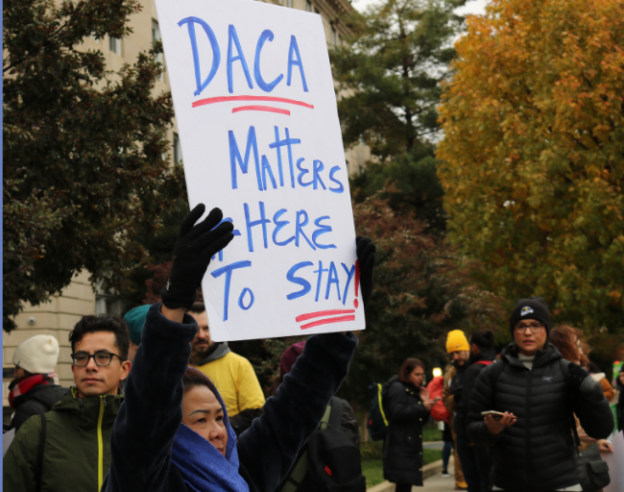
A Decade of DACA: Haziel’s Story
Haziel A.
June 15, 2022
At the age of three, I arrived in the United States with my aunt, grandparents, and older sister from La Paz, Bolivia. It was 2001 and my parents were not able to come with us due to a restriction in visa approvals after the 9/11 attacks, and their visas were denied for the next four years. I recall moments when I missed my parents and did not understand why we had to be apart. I eventually grew accustomed to not having my parents around.
Although I do not remember my parents outwardly telling me that I was undocumented, there were three instances when I realized that I was, in fact, undocumented and felt the repercussions of being undocumented. The first time was when I wanted to go on class trips in elementary school outside of the country and could not. The second time was when I saw my older sister, who is also undocumented, struggle to get through high school and college. The third one was when my father was detained by ICE at a traffic stop as he was coming home from work one night and taken to Farmville Detention Center. In 2012, I was 14 and Obama took executive action and announced that DACA would be enacted in Washington, D.C. I remember watching the announcement on TV feeling a sense of relief that I would not have to endure the struggles that my sister, my dad, and the community around me did.
Fast forward a decade to today, I recently graduated college from Virginia Commonwealth University with a Bachelor’s degree in Computer Information Systems. I have also gotten my driver’s license and have been able to apply and accept work in my field and moving constantly toward my dream job. While DACA has been able to secure me during my upbringing, the future of DACA is still and always will be at stake due to the fact that it is not a permanent protection. There are many things that I wish I had known growing up, one of them being that the looming uncertainty I have felt my entire life was caused by the fact that even when there was a “solution” presented by the government, it was never a permanent one. My dream for the future of this country is to repair and rebuild from the ground up as a collective to bring about real solutions in our flawed systems that do not feel like just Band-Aids. I believe that my family and our communities deserve to contribute and exist peacefully as we have always done even in the midst of all the disruption and chaos. Although DACA has given me many opportunities that I will forever be grateful for, for many, it is also a gatekeeping Band-Aid solution and a constant reminder to 825,000 of us that our undocumented communities are not wanted. It is ultimately a temporary solution to an even greater problem that this country needs to fully address.
Name abbreviated for anonymity.







